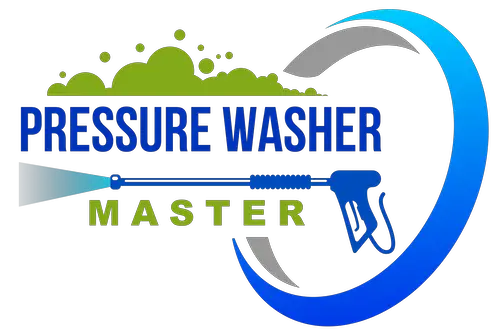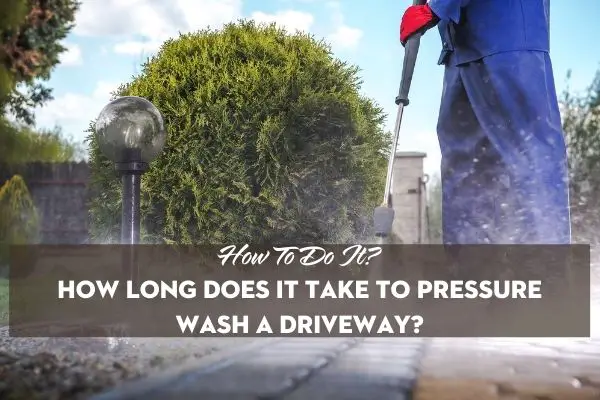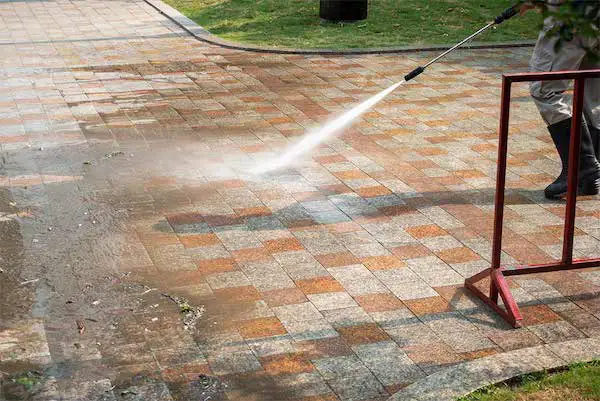You might feel compelled to clean your driveway if it’s covered with dirt, weeds, and moss. Then, the most straightforward and most efficient approach to cleaning your driveway is to pressure wash it thoroughly.
With this in mind, how frequently should your driveway be pressure washed? At least once a year, pressure washing your driveway to keep it looking clean and fresh. Also, any time your driveway becomes extremely dusty or overgrown with moss or weeds, it’s a good idea to pressure wash it.
You might also be curious about several things relating to pressuring your driveway. When it comes to pressure washing your driveway, this article will address all of your questions. Scroll down.
How Long Does It Take To Pressure Wash A Driveway?
The majority of the time, pressure washing a driveway takes thirty minutes or less. And it doesn’t include the ten-minute wait. This is because pressure washers are pretty strong, and most driveways aren’t that big. However, if your driveway is very spacious – intended to accommodate more than two vehicles – the process may take longer.
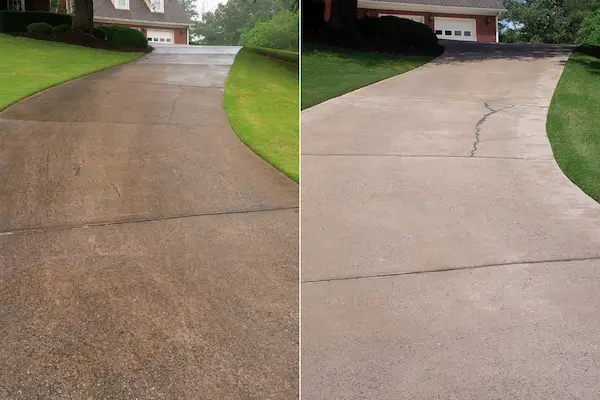
If you’re also wondering, “how long does it take to power wash a house?” then the answer will not be that simple. The time it takes to power wash a house is determined by several factors. Every house is different, from the square footage to the materials used to construct it, making it impossible to provide an accurate estimate. For example, power washing in a 2,000-square-foot home can take anywhere from one to three hours.
What Kinds Of Dirt Appear On Driveways?
So, what kind of filth and grime accumulate on driveways? Here are a few examples of more popular types:
- Oil and grease: One of the most challenging stains to remove.
- Driveways can be littered with organic trash such as leaves, bird droppings, and other organic materials. Many of these items will decay and break down on the driveway, releasing acidic byproducts that can harm the substrate and create stains.
- Gravel and soil are frequently tracked onto driveways, where they can get muddy and discolor the surface. These are typically simple to remove, although they can be ugly.
- Moss: While this small green plant may create an attractive effect in gardens, it can also accumulate on other surfaces, such as roads.
- Mold: Black mold and other types of mold are fungi that are difficult to remove with ordinary cleaning solutions. Black mold thrives in moist, humid environments. Therefore it’s not unusual for homes to have a problem with it.
- Green algae: You might think of this aquatic plant as only being found at the beach or in the sea, but it can grow on both roofs and roads when the conditions are right.
How To Prepare For Pressure Washing Your Driveway (Tools and Chemical)
Excess weeds, moss, and debris must all be washed away before turning on the pressure washer to provide the best possible finish on your driveway. Professionals will often use a chemical mix to help scrub down as part of the entire cleaning procedure to loosen up any extra dirt, then be pressure washed away.
This phase of the pressure cleaning procedure depends on the amount of dirt, algae, lichen, and debris present. It’s important to remember that cleaning your driveway regularly – at least once a year – will make this procedure go as smoothly as possible.
Pressure Washing Your Driveway: A Step-by-Step Cleaning Guide
-
How To Pressure Wash Your Concrete Driveway
Step 1
It may seem self-evident, but homeowners must remove children’s toys, cars, and anything that might obstruct pressure washing.
Step 2
Connect the garden hose to a 25-degree nozzle to get your cleaner ready. Turn the hose now and sweep your driveway to remove debris, such as stones, grass, tiny tree leaves, and branches.
Step 3
Now, start using the detergent. First, read your handbook to determine which driveway cleaners and degreasers are suggested for your specific washer. At this point, you should also attach the low-pressure soaping nozzle to your sprayer. Step 5 is to use the soaping nozzle to soak the driveway instead of blasting it clean.
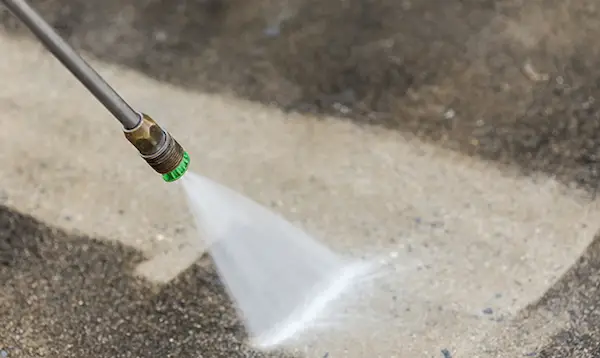
Step 4
Allow for 5 minutes for the cleaning solution to work its magic on the driveway before doing the correct pressure wash.
Step 5
The detergent is ready to blast away the driveway stains, difficult grime, mildew, and other debris now that it has broken down the stains and harsh grime. The best way is to use a pressure washer attachment with a surface cleaning attachment.
Because it disperses the water over a greater area, a surface cleaner attachment will finish the clean faster and better, decreasing the danger of substantial damage from high pressure while also pulsing the flow to more easily “tear” the dirt and grime off the surface. A surface cleaner can cost anywhere from $20 to $2000, depending on its size and material (plastic or stainless steel).
Step 6
A rotating nozzle cleans the water flow in the same way as a surface cleaner does. It pulses/rotates the water flow to push and scrape dirt and grime off the surface more effectively. Use one to get rid of tough stains and filthy places.
Step 7
The driveway should now be free of debris. It’s time for the last rinse, which will remove the detergent. Rinse your spray wand well with the 25-degree nozzle attached.
Check out this video if the process still seems confusing to you: Pressure Washing Concrete Driveway
-
How To Pressure Wash Your Brick Driveway in your house
Step 1
Soak the driveway. Use the tiniest spray nozzle you have. The goal is to moisten the whole brick surface to prevent the detergent from absorbing into the brick.
Step 2
Using the appropriate nozzle, apply the detergent to the whole surface, making sure it is completely covered. Allow 5 minutes to do its work, making sure the area is soaking.
Step 3
To eliminate the dirt, filth, and detergent, use the 25-degree rinse nozzle. More detergent and less brick pressure are the keys. You don’t want the mortar to be destroyed.
How Often Do You Need To Pressure Wash My Driveway?
Although it is recommended that you pressure wash your driveway once a year, you should also be aware of the obvious physical signs that your driveway needs to be pressure washed. Moss and algae build-up, plants growing through gaps and edges, and noticeable persistent stains on the surface are all examples of this.
If you opt to keep your driveway unclean for years, the dirt and grime buildup might cause cracking, pitting, and other damage to your driveway, as well as some possible risks. In addition, you may need to repair or replace the driveway entirely. Having your driveway cleaned once a year might help you avoid these possible expenditures in the future.
Conclusion
So, how long does it take to pressure wash a driveway? Roughly half an hour.
A decent pressure wash can always clean up your driveway, no matter how nasty it is. You may even do a pressure wash on your driveway yourself if you want to. Pressure washing your driveway has several advantages, including enhanced aesthetics and preventing possible dangers, damage, and accidents.
We recommend having your driveway pressure cleaned at least once a year to keep it in the most acceptable possible condition. This is also an excellent time to get your driveway pressure cleaned if it exhibits signs of wear or has a large quantity of dirt or grime.
Further Reading
